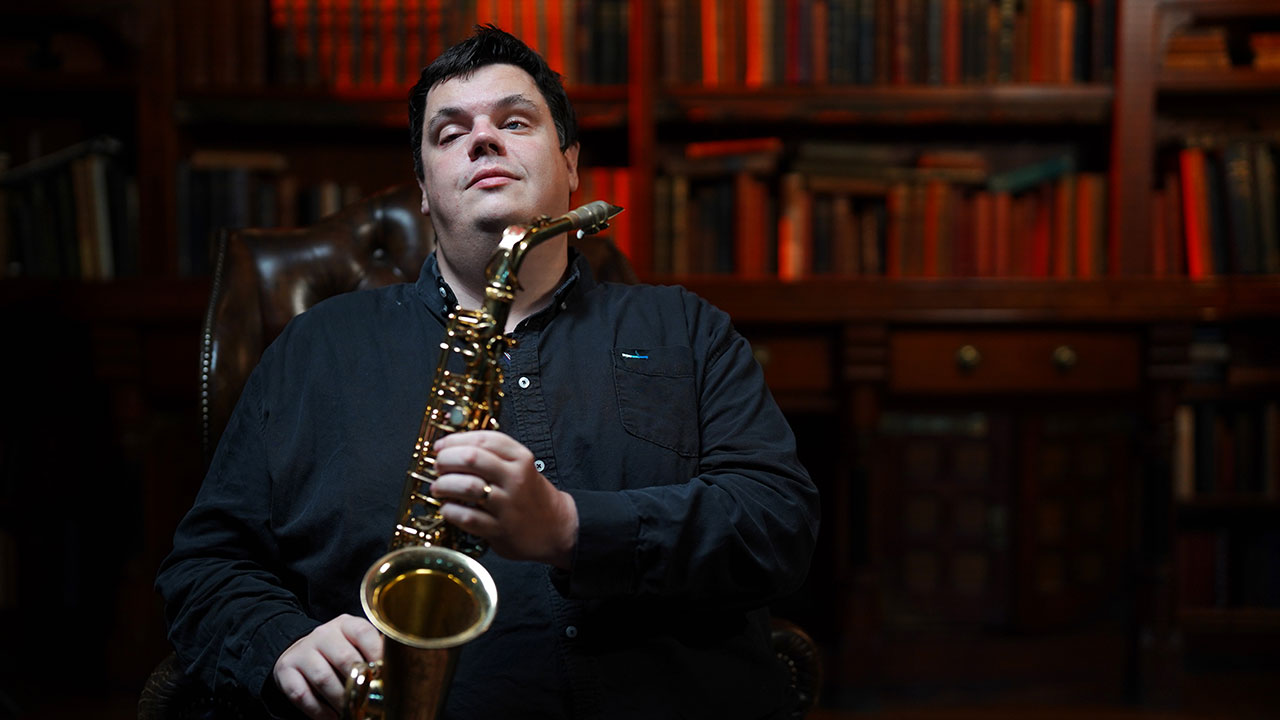I’ve been saying to everybody, and I probably should stop saying it because it’s probably going to put some people off... but it’s not the proggiest album that I’ve done,” says Tiger Moth Tales mainman Peter Jones somewhat sheepishly about his new record, The Turning Of The World. “But it was just an album I felt I had to write.”
Sometimes, needs must. With lyrics often focusing on the rudimental topic of coming to terms with the constant cogs of change, and songwriting that stemmed from the six strings of an acoustic guitar rather than any elaborate keyboard wizardry, it’s fair to say Tiger Moth Tales’ eighth album merits the ‘stripped-back’ tag despite being labelled the “companion” to 2020’s The Whispering Of The World.
While prog fans with a penchant for pandemonium may feel a little left out of the party, the brain-gnawingly catchy tunes and smooth melodies, mixed with just enough out-the-box thinking and divergence, sees Tiger Moth Tales at their most impactful yet.
Well, take the term ‘their’ lightly; Jones wrote, recorded and produced everything, sang and played every instrument – guitar, keys, drums, whistles, sax and more. The only outside input are Robert Reed and Christina Booth’s backing vocals on the yearning We’ll Remember, which is a tribute to the late Big Big Train vocalist, and Jones’ previous collaborator, David Longdon.
“I have had a couple of guest players in the past, guest performers, and I’ve had guest writers on a couple of the albums,” Jones says. “But this was all me. I wanted to go back to writing with a guitar, because back in the distant days before [2014 debut solo album] Cocoon, before I started doing prog, I used to do a lot of my writing on the guitar.
“This is back in my sort-of bachelor days, and I tried to make some kind of pop career. I would do a lot of the writing on the guitar, because it was just there on the wall. I would wake up at three o’clock, four o’clock in the morning. I’d get the guitar off the wall, and something would always come. I don’t do that so much with the prog stuff.
“A lot of it is kind of complicated and I’m not that good a guitarist, so I tend to write mostly on keyboard, which is my main instrument for prog. But this time around, I really wanted to do an acoustic, guitar-based album. I think that dictated what the songs were going to be like. I wanted to play these songs properly on the guitar.”
At the spine of the album, which was recorded on an old eight-track cassette set-up, is a juxtaposition of joy and reflection. Take So Wonderful To Be Alive, for example: a peppy tune that gives Jones the platform to reflect on a “bunch of good memories, right from when I was a kid, right up to my wedding day.”
It’s a different audience now and not quite the arenas any more, but doing the stuff I do now is more fulfilling
Or the title track, an earworm which tackles the universal topic of change. Then there’s You Reached For My Hand, or the aforementioned Longdon tribute. It’s personal stuff, but it touches on topics that tend to have the most impact.
“My dad was very seriously ill at the end of 2022, and then quite a long way into last year he was in hospital in an induced coma,” Jones says about You Reached For My Hand. “There were a lot of times when we didn’t know if he was going to make it, and obviously that was a terrible time for us to go through, and for him.
“As a family we don’t go overboard with the emotional outpouring, and so it wasn’t until a bit later when I was thinking back to all that, it came very quickly and naturally – as some songs do. Some songs I can be fretting over for weeks, and months and years, even. It’s a short song, but it says what it needs to – how we’re all so glad that he came through it.”
Jones says you can “really have fun” with progging out on fantasy lyrics or telling other people’s stories and conjuring up different worlds. “But with this album it’s definitely a lot more personal,” he reflects. “People seem to react more to albums that are personal to whoever made them – it seems to connect with stuff that they’ve experienced as well.”
Jones’ journey to prog is fairly well known; from rubbing shoulders nearly 20 years ago with Simon Cowell on the talent show The X Factor as part of pop vocal duo 2 To Go, to channelling a love of acts like Genesis into creating neo-prog epics with Tiger Moth Tales.
Nowadays, he also provides keyboards for Camel and Francis Dunnery’s It Bites, and is part of Red Bazar and Cyan. To keep the bills paid, he still plays club and pub gigs, performing covers from the 60s to the modern day, as he’s done for more than two decades.
Jones isn’t too keen to dwell on his stint on The X Factor, where the cut-throat nature of TV stung. “It seems like a lifetime ago,” he says. “It’s all part of life’s experience. The TV thing is kind of overrated, but we did the live arena tour after that, which was a lot of fun. I think we did 10 arenas, so that was a nice touring experience. It’s a different audience now and not quite the arenas any more, but doing the stuff I do now is more fulfilling.
“Nine years I’ve been doing this prog stuff, and I still have to pinch myself and think that people actually want to come and pay to hear this. And then of course doing stuff like the Camel tours that I’ve done, that’s on a whole different level.”
The cogs, meanwhile, are already turning for more Tiger Moth Tales material. Having already released records about winter and spring, there’s still two seasons in his back pocket, he hints with a smile.
Sometimes I think my head is spinning and I don’t know what the hell I’m doing, and I’m trying to juggle too many things
But the musician says he may also look to revive an album he started back in 2005 that never got finished. Add those to the other jobs, and there’s plenty going on in the life of Peter Jones. You get the feeling he wouldn’t have it any other way.
“Sometimes I think my head is spinning and I don’t know what the hell I’m doing, and I’m trying to juggle too many things,” he concedes. “I don’t make that easy on myself – I agree to all these things, so I’ve got no one else to blame. There have been times when it does get a bit much.
“But I’m making and contributing to music that I love, and working with some amazing people, and ultimately I’m a very lucky lad. I never thought I’d be doing all this stuff. I never thought that prog would be some sort of positive career move, back in 2014. It’s been amazing what’s happened since.”

